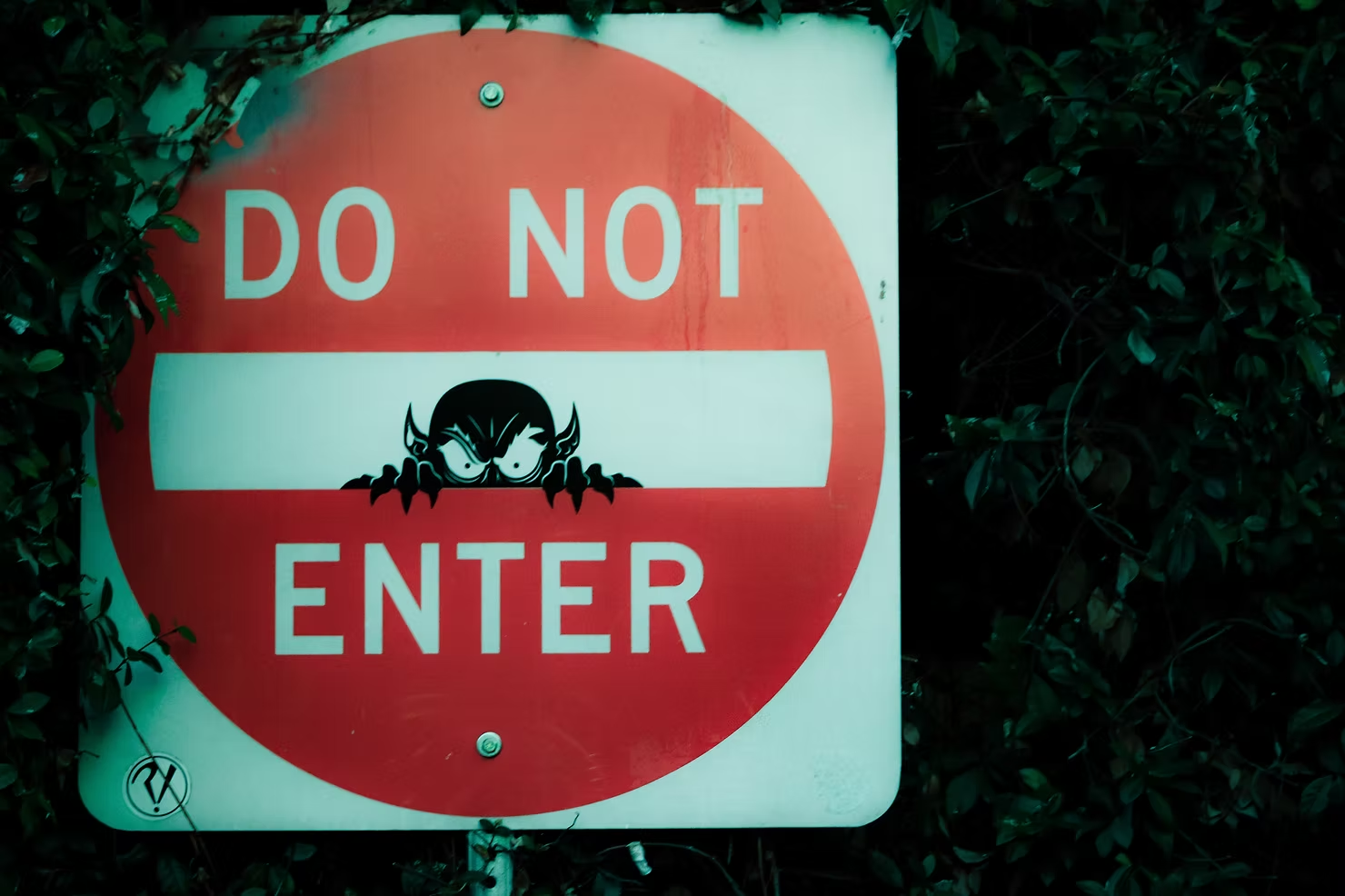Some easy tools to avoid common cognitive traps that can negatively impact your mental health.
This concept is from the U.S. Air Force’s “Comprehensive Airmen Fitness” resiliency program. My examples and uses are my own.
“Never attribute to malice that which is adequately explained by ignorance.”
This is one of my favorite aphorisms. Various forms of it have been attributed to multiple authors, but the concept is simple: sometimes, what your mind believes about someone’s motivation isn’t real. As I mentioned last week, when I encouraged you to “look for the helpers,” our minds instinctively seek out dangers. Our animal brains like to take shortcuts and focus on the wrong information, miss evidence, or jump to conclusions. We like to look for claws, fangs, and predatory intent, even when there’s nothing dangerous. Because of this instinct, when somebody crosses us, fails to keep a promise, or says something upsetting, we will often assume that they are acting maliciously. Turning it around, how often was your intention to hurt someone through your actions? I’m betting that it wasn’t particularly often. So how do we combat these misperceptions and stop them from interfering with our performance or relationships? Let’s start by identifying some common cognitive traps that interfere with our ability to assess someone’s intentions accurately.
Trap #1: All or Nothing
I often like to tell my kids that words like “always,” “never,” “everybody,” and “nobody” are rarely accurate. They are typically used to express extremes. This cognitive trap is all about looking at your challenges in destructively extreme ways. Some common examples are, “Everybody always thinks I’m terrible at things like this,” or “nothing ever works out for me.” The All-or-Nothing trap also includes dramatic hyperbole, like “I hate a slice of pizza while on my diet; I am a complete failure.”
Trap #2: Confirmation Bias
Anyone that surfs social media will see this cognitive trap all the time. Confirmation Bias is our natural attraction to information we already believe to be true. The obvious example is of folks that purposefully chose news outlets and editorialists (or bloggers!) that will agree with their personal view of the world. A less obvious example is when a new teammate transfer into your organization, and their prior supervisor reported that they have a hard time showing up to meetings on time. While you might completely overlook a measure of tardiness from someone else, you will find yourself hyper-focused on each time your new teammate shows up 30 seconds late. Worse, you’ll likely miss all of the times they show early!
Trap #3: Blaming Others
You’ll see the Blaming Others trap in folks you’d likely prefer not to be around. We all know the negative teammate who will quickly point out the shortcomings of others and thoroughly wash their hands of their role. The classic refrain is, “they should do something about this” without stopping to think that “they” includes everyone. This kind of negative attitude can be a self-fulfilling prophecy, for they’ll also be the ones to point out how poor everyone’s morale is while neatly sidestepping their attitude’s role! This cognitive trap is dangerous because initially, it makes you feel better, but in time it just makes you feel powerless and defeated.
Trap #4: Blaming Yourself
Blaming Others is self-destructive, but it takes time; the Blaming Yourself trap is much more direct. This cognitive trap is when you irrationally blame yourself for adverse events without seeing the contributions of others or realizing it was outside anybody’s control. A simple example occurs when you work hard to recognize a teammate with an award or promotion, only to see someone else receive that recognition. This doesn’t mean that you (or your teammate) did a poor job, just that someone else did better this time. A more extreme (but unfortunately typical) example is when someone decides to take their own life. Their friends, family, and teammates will often individually assume that there was something they could have done and shoulder the responsibility, even when nobody around them would ever agree with that perception.
Trap #5: Mindreading
Mindreading is not just a common cognitive trap; it’s also a disastrous barrier to effective communication. It comes in two forms: 1) when you assume that you know what someone else is thinking, and 2) when you assume that someone knows what you’re thinking. How often does a fight start between a couple when one expresses all of the body language of being angry or sad, but when questioned, abruptly responds, “I’m fine!” Clearly, they aren’t fine, and they’re likely even more upset because you don’t know exactly why. Professionally, we’re often given a task, but fail to ask, “what does done look like?” (an approach I shamelessly lifted from Dr. Brené Brown’s book, Dare of Lead). Our supervisor will assume that we know exactly what their expectations are, and be shocked when we take the project in a completely different direction.

So we’ve gone over five different common cognitive traps. Coming back to our opening aphorism regarding malice and ignorance, you can quickly see how any one of these traps invites you to assume the worst motivations. Just understanding and recognizing them is essential, but there are also three easy tools we can use every day to challenge them.
Tool #1: Examine the Evidence
Ignore your assumptions and look for clear valid evidence. Ask yourself the critical questions, like:
- “Is there any evidence to support this thought?”
- “Is there any evidence to disprove this thought?”
- “Am I missing any information?”
Just be asking yourself these questions, you can push through a lot of the cognitive traps we discussed. Obviously, it’s important to be honest about the validity of the evidence you find. This can be challenging if you’re already in a delicate mental state, which brings us to our next tool.
Tool #2: Check for a Double Standard
This tool is especially useful for dealing with the Blaming Others and Blaming Yourself cognitive traps. Double standards are when we decide that there are different standards for different individuals or groups. Try to get outside of yourself for a moment, and imagine a teammate, friend, or family member in the same circumstance. What advice would you give them? Would you agree with how they (you) are feeling? Are you judging yourself more harshly than others would judge you? Alternatively, would you judge others harshly if they did the same thing? Both of these tools are great, but our final tool is the most useful of them all.
Tool #3: Phone-A-Friend
I can’t tell you how often it has benefitted me to apply those first two tools with somebody else. An outside perspective can be vital to validating your use of those other tools. Don’t be afraid to seek out different opinions; both people who may have some expertise on your issue and those who don’t can provide useful viewpoints. In a professional setting, consider consulting peers, mentors, supervisors, or even direct reports. All of them can offer unique perspectives, build trust, and invite them to do the same later on. While using this tool in a literal sense is the most obvious way, don’t forget about your Board of Directors! As I previously discussed, your Board is a tool to give you outside points of view and inspiration from within your own mind.
Conclusion
Our minds are hardwired to fear the unknown. We automatically want to take shortcuts and fill in those gaps with danger and malice, including when it comes to the motivations of others. Doing so can make you utterly miserable and become incredibly self-destructive when unchecked and unjustified. We have identified some specific cognitive traps that can exacerbate this: All or Nothing, Confirmation Bias, Blaming Other, Blaming Yourself, and Mindreading. Recognizing and understanding each of those traps when you’re falling into them is crucial! Even more important is how we can easily combat these traps with just three simple tools: Examine the Evidence, Check for a Double Standard,and Phone-a-Friend. All of these tools can help us understand that when somebody crosses us, it’s rarely their intention; often, it’s just a miscommunication or misunderstanding… or just plain ignorance.
This can help build your resiliency in the face of challenges and provide a more positive outlook in most situations. Let me know if you’ve used these tools and if there are any others you’ve used!
